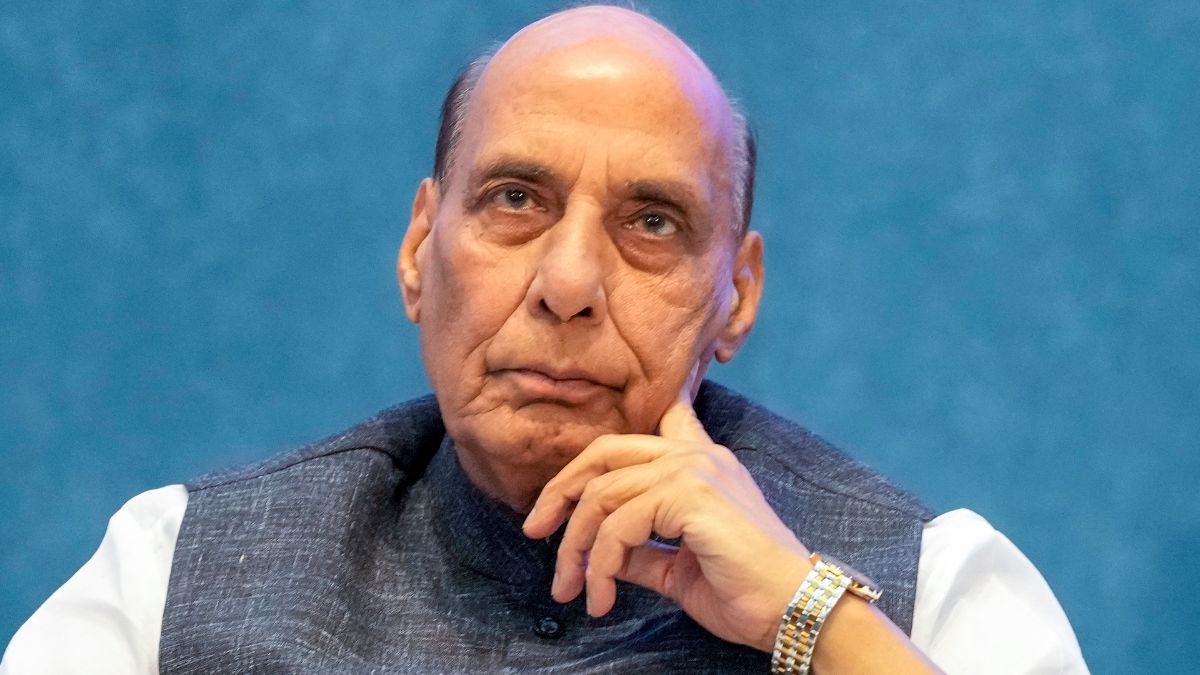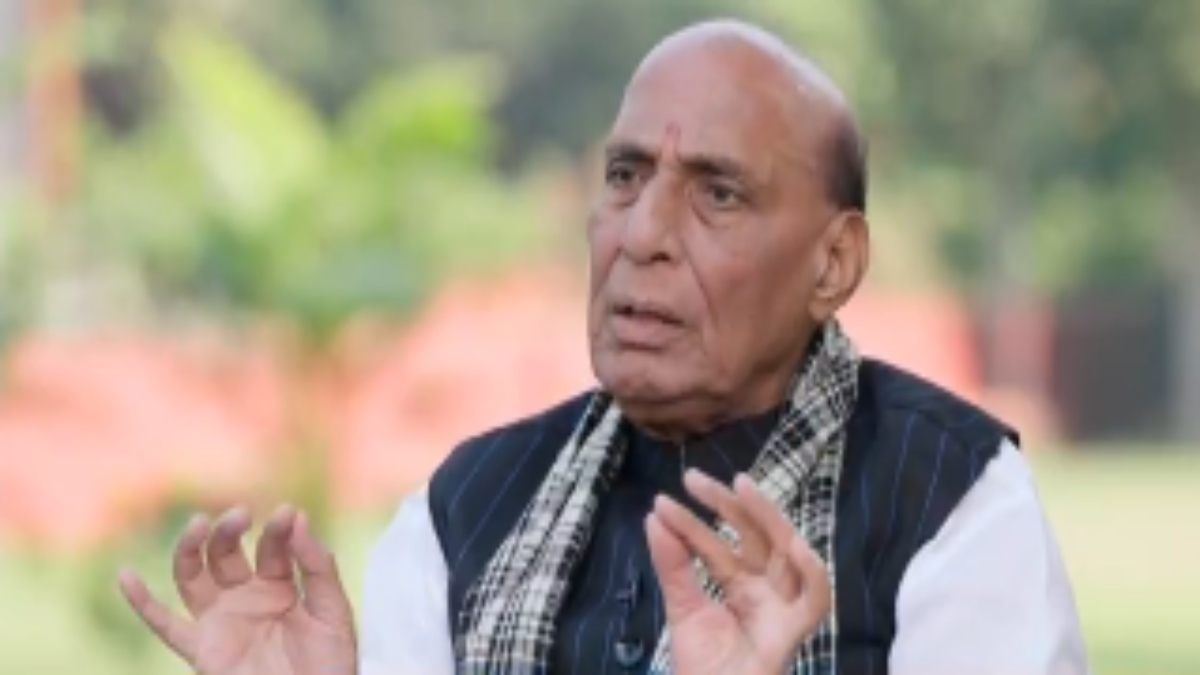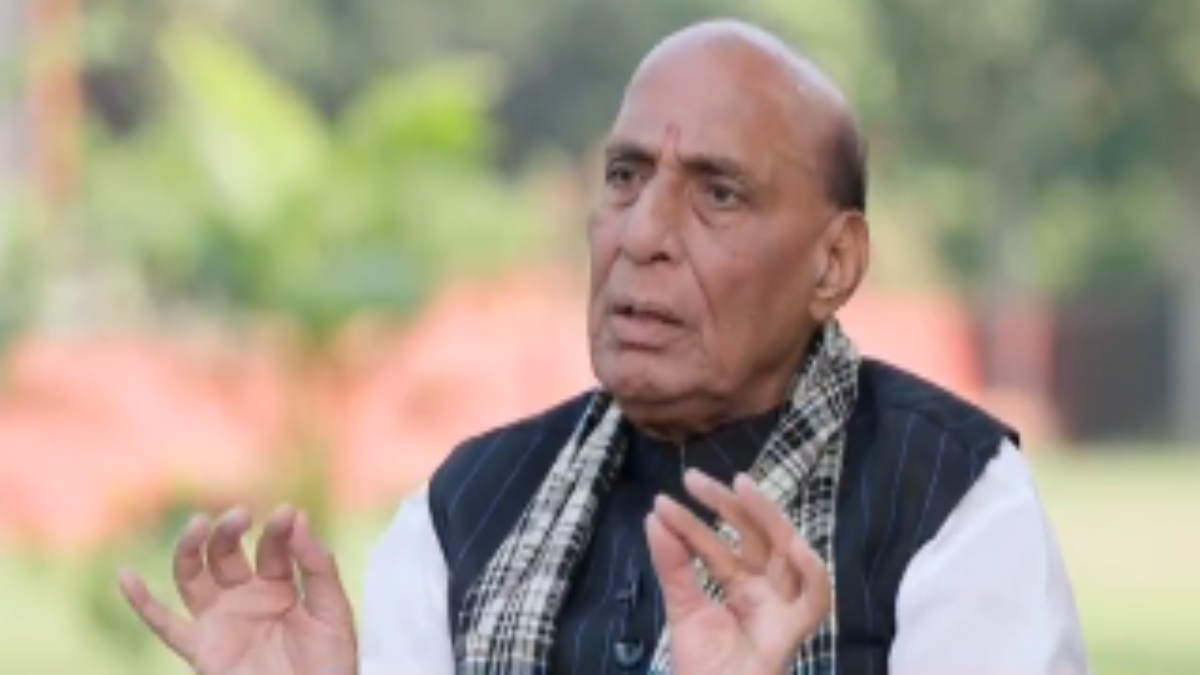Defence Minister Rajnath Singh reaffirmed India’s policy of non-interference amid rising tensions between Afghanistan and Pakistan over the disputed Durand Line.
In an exclusive interview with Network18 Group Editor-in-Chief Rahul Joshi, Singh dismissed Pakistan’s allegations of Indian involvement in recent cross-border clashes and a bombing in Kabul, calling them “completely baseless and unsubstantiated.”
India stands for peace, not provocation: Rajnath
Singh stressed that India’s foreign policy is rooted in peace and mutual respect. “We do not seek or encourage any kind of confrontation. We want peace in the world. We are in favour of peace. We will not provoke anyone or encourage conflict with anyone,” he said.
At the same time, he made clear that India would not hesitate to defend itself if provoked. “But if someone teases or provokes us, we will not spare them,” he asserted, adding, “We do not use crutches to defend our self-respect. We do it ourselves. We take decisions on our own and take required actions on our own.”
Asked about India’s position on the border conflict between Afghanistan and Pakistan, Singh reiterated New Delhi’s policy of non-intervention. “Whatever the issue, all the countries involved should sit down and settle it by negotiation,” he said, emphasising that dialogue between the two nations is the best path forward.
He further clarified, “We do not want to intervene in another country’s affairs,” signalling that India would only consider involvement if both sides requested it.
To underline India’s diplomatic restraint, Singh used a popular Hindi idiom: “We do not believe in ‘maan na maan, main tera mehmaan’ (whether you like it or not, I am your guest).” He described the dispute as an “internal matter” for Afghanistan and Pakistan, reaffirming India’s commitment to respecting the sovereignty of other nations.
Singh’s remarks effectively countered Pakistan’s accusations while reinforcing India’s consistent stance — peace through dialogue, strength through self-reliance, and respect for regional stability.


)

)
)
)
)
)
)
)
)



